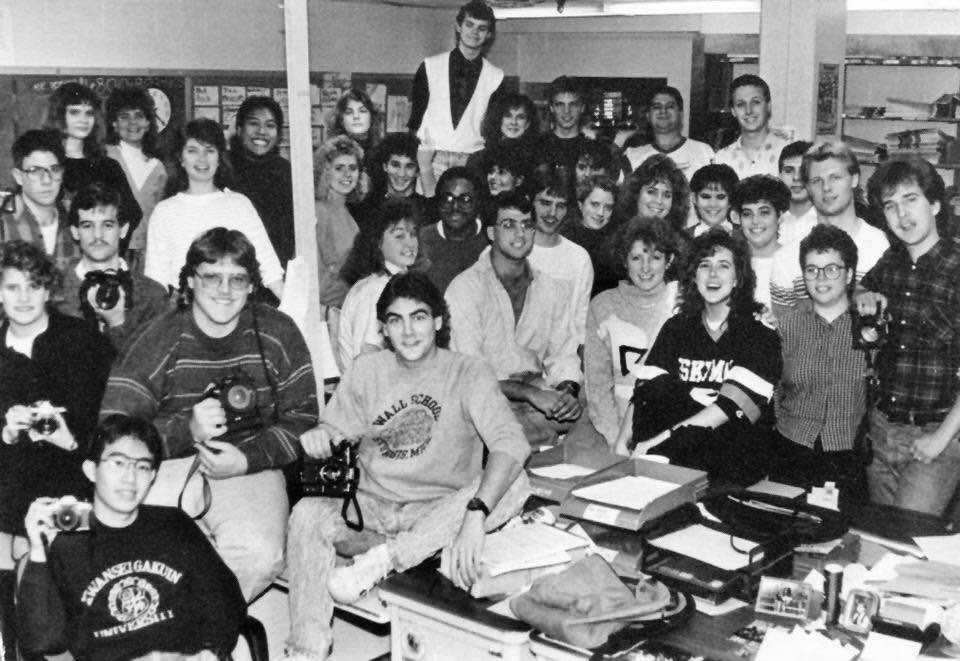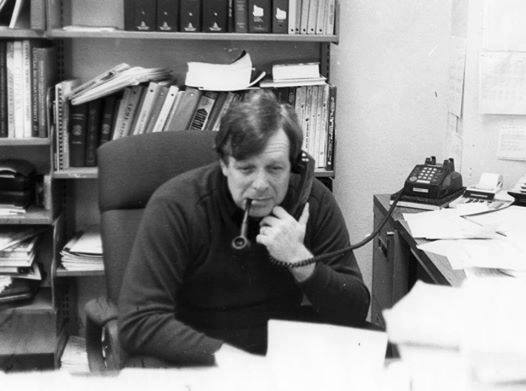Almost 30 years ago this week, I arrived on campus at Central Michigan University, settled into my dorm room a little and headed over to the basement office of the college newspaper.
I hadn’t gone to a single class yet when I got my first story assignment for the award-winning Central Michigan LIFE. I knew less than nothing about CMU, but off I went to begin my reporting journey.

Thankfully, even though I struck out with my first assignment, LIFE became my job and the center of my college universe for four years. I spent maybe 60 hours a week working there, while carrying a full course load, and got the experience that propelled me into a full-time newspaper reporting job when I graduated.
What I didn’t realize during my four long, hard college years was that our newspaper adviser would be a career coach and job recruiter for many years to come. Every newspaper job I ever had, I got because Jim Wojcik made an introduction for me. (And he’d then promptly ask me for a donation to help support the college newspaper.)
Woj also acted as therapist when some of those early jobs were challenging. I remember one time in particular, I called him crying about my first job, and I think I wailed something like “Why did you send me here??” (I was dramatic and emotional, lonely and desperate for approval as someone doing a good job.)

Woj told me everyone’s first job is hard. Think of it as boot camp. You’re there to get real-world experience. Tough it out for a year. If you hate it after a year, you move on to the next place up the career ladder.
This “Suck it up” pep talk helped tremendously. Once I had a timeline, that I had to be there for one year, I shifted my mentality to how to make the best of it until then.
(It also helped that our editor realized the boss who was driving me to tears was a problem, and showed him the door. Mostly I worked with kind people I liked.)
I’ve thought a lot about Woj’s advice over the years, and put it together with insights I learned in one of my favorite MBA classes, compensation and motivation.
Here’s part of what I’ve deduced:
Generally speaking, employers would rather hire someone with experience than someone without. It’s easier on everyone if a new hire comes in knowing what to do.
So if a boss is willing to bring in the inexperienced hire, there’s probably a reason.
That reason is likely to be money. The organization doesn’t budget enough to pay what an experienced person demands, so they’re left with people willing to take a low wage to get experience.
It could also be culture. If a place has a reputation for low morale or lousy management or otherwise being an unpleasant place to work, someone with other choices will likely go elsewhere. A better resume opens up options. The person desperate to get a first job on her resume can’t be as picky.
Either or both of these factors can combine to make that first job feel rough. There you are, climbing up the steep end of the learning curve, and not making much money for your frustrations. Maybe your better peers, the ones who could mentor you and help you along, get their experience and move on.
If the organization was ideal — if they had a smart, experienced, nurturing team with talented leadership and good pay — they’d likely have a line out the door of better applicants than you, the rookie. The reason you can get in with just your aspirations and willingness to learn is that those better candidates didn’t get there first.
Is this always the case at low-level jobs? Of course not. At my second job out of college, I made $18k a year working some late hours at the weekly South Lyon Herald. None of us in the newsroom were there because we loved South Lyon. We were there to get experience. It was our next stop on the newspaper career path. But my newsroom colleagues did some excellent work and served the community well while forming a warm, supportive team. We put a lot of heart into our work.
I was there because Woj told me it was time to move on from my first job to my second, and introduced me to the hiring editors. In the times when I struggled with that second job, I would call Woj, and I would reflect on his advice that I didn’t have to stay forever, I just needed to tough it out long enough to get ready for my next move.
Related posts:

Career advice from my college newspaper adviser: Everyone's first job is hard
